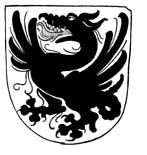
Into Peter’s Barque
NO LONGER MAKING UP MY OWN RELIGION
I enjoy reading conversion stories, particularly those from the 1940s and 1950s, such as the various collections edited by Fr. John O’Brien, which included Where I Found Christ, The Way to Emmaus, Roads to Rome, and Where Dwellest Thou? Happily, such stories are being published again in our time, mostly stories of a new generation of converts. Conversion accounts can rally and buoy up those of us who are already Catholic as well as serve as a guide to those who are finding their way into the Church. I hope my account here will encourage both those already, and those not yet, Catholic.
I was raised in a family that considered church-going very important, but at the same time was not theologically orthodox. My father was the cause of this unusual combination, for he was a skeptic in religion who nonetheless always valued the social aspects of church attendance. In the small and medium-sized Ohio towns where we lived, my family attended services of Protestant congregations, and at one point I went to Sunday school at a Methodist church practically next door to us. For a short time my father even conducted his own Sunday services in our home. Later, when I was about six or seven, we returned to the Unitarian Church, which was theologically more to my father’s liking. I have several memories, pleasant enough, of going there. But when I was about 10 we left the Unitarians, I think because of quarreling among the members and the presence of eccentrics among them, such as flying-saucer devotees, and we began to attend the Episcopal Church. My father was attracted by the dignity of the service and the music, by the intellectual character of the clergy and members, and by the absence of a dogmatic emphasis in Episcopalianism.
Obviously I differ with my father about religious questions, but I am grateful to him nonetheless for having shown me that religion is not something to be left to women and children, but something that an adult male could well concern himself with. It is possible that, humanly speaking, I would never have started on the path that led to my embracing the Catholic faith had it not been for my father’s words and example.
When I was young, say from about four to 10 or 11, I had a vague notion of God, once equating him with a very large piece of farm machinery that was parked near our house. As I approached adolescence, I began to wonder whether there was a God or not, and I didn’t have the slightest idea of how to find out. By around the age of 13, I had concluded that there definitely was not a God, and I considered myself an atheist. During this period I underwent the Episcopal confirmation ceremony. I had had some hesitation about being confirmed, but my father urged me to do so, because of his belief that it was important to belong to some church, even if one did not believe what it taught. I remember in the 10th grade, during the moment of silent prayer at the beginning of the school day, consciously not praying, indeed attempting to do homework, until the teacher told me I had at least to sit there and do nothing if I did not want to pray. (This was in a public school!)
You May Also Enjoy
The future St. John Neumann credited Frederic Baraga’s example for his vocation, as did a stream of Slovenian priests who followed him to America.
In England, with the establishment of the ordinariate, the effects of Pope Benedict's 2010 visit would be felt in concrete ways for years to come.
In the sociological imagination, it is man who creates God. Once he frees himself from God, anything is possible, or at least appears to be.

